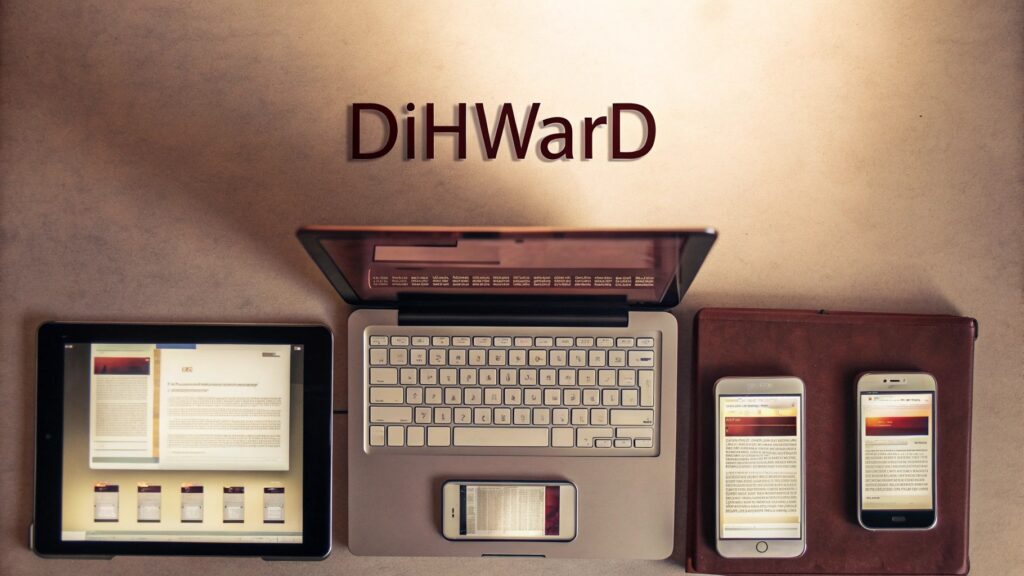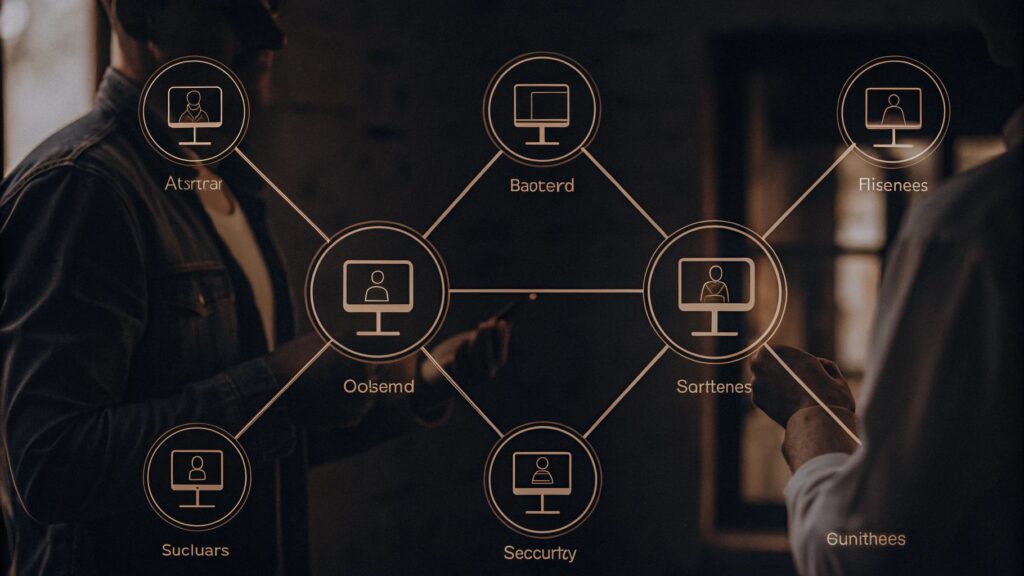In recent times, the word “Dihward” has started appearing across blogs, articles, and online discussions. Even though it is still a new and evolving concept, people are curious about its meaning and potential. Unlike common terms, Dihward does not have a single fixed definition. Instead, it is used in different ways depending on context. Some writers describe it as a digital identity framework, while others see it as a mindset or philosophy about adapting to modern life.
This flexibility is what makes Dihward interesting. It can be understood both as a tech-driven innovation and as a personal growth approach. Whether applied in business, education, health, or daily living, Dihward represents a shift towards balance, adaptability, and future-focused solutions. As the digital age continues to expand, Dihward could become an important idea shaping how people and organizations interact with technology and society.
Origins and possible meaning of the word “Dihward”
The origins of the word Dihward are not fully clear. Unlike traditional words with strong roots in history or language, this term seems to have been coined recently. Some believe it combines “Di(h)” with “ward,” possibly meaning a path or direction that moves forward with digital transformation. Others think it was designed as a unique brand-like word that has no direct linguistic origin but carries a modern sound.
Because the word is not tied to a single definition, it is open to interpretation. This openness gives it flexibility in branding, technology, and philosophy. It can represent innovation, adaptability, or even an identity platform https//rivenis.net/. In today’s internet-driven culture, such coined words often gain popularity because they are fresh, unique, and easy to reshape. Dihward fits perfectly into this category, offering room for growth in meaning and usage.
How different sites and experts define Dihward

Different blogs and online writers have explained Dihward in multiple ways. Some platforms describe it as a digital identity system, similar to how users create secure logins and profiles across devices. In this sense, Dihward represents a simplified approach to digital security and identity management. For businesses and individuals, this interpretation makes it a useful framework for future technology.
On the other hand, some writers treat Dihward as a philosophical idea. They argue it is about maintaining ethical values while adapting to change. It is a mindset that encourages people to stay balanced, flexible, and resilient. Instead of being a strict rule or fixed system, Dihward becomes a guiding principle for life and work. Both definitions—technical and philosophical—show how the word has the power to grow in different directions.
Dihward as a Digital Identity and Tech framework
One of the strongest interpretations of Dihward is as a digital identity system. In today’s world, people use multiple apps, platforms, and devices. Managing secure logins, passwords, and data privacy has become a major challenge. Dihward is seen as a potential framework that can unify and simplify digital identity management. With the rise of blockchain and biometric authentication, Dihward could act as a smart way to protect privacy while giving users more control.
This interpretation is especially important for businesses. Companies that adopt digital-first policies need tools that build trust and protect sensitive information. Dihward, as a concept, suggests an ecosystem where people can easily prove who they are online without complicated steps. It can also reduce risks of identity theft and create smoother user experiences. If developed further, Dihward could play a big role in shaping the future of secure online interaction.
Philosophical and mindset interpretation of Dihward

Beyond technology, Dihward can also be seen as a mindset or philosophy. In this sense, it is about adapting to rapid changes while holding on to core values. Many writers suggest that life today requires a balance between innovation and tradition. Dihward becomes a principle that guides individuals to remain resilient, ethical, and forward-thinking.
For example, in personal development, Dihward could represent the ability to accept challenges, learn from failures, and move forward without losing one’s identity. In organizations, it could mean building cultures that embrace change while still respecting employee well-being and integrity. This flexible philosophy makes Dihward more than just a technical word. It transforms into a symbol of growth, adaptability, and strength in uncertain times.
Key benefits of adopting Dihward in modern life
The concept of Dihward offers several benefits, depending on how it is applied. From a tech perspective, it simplifies digital security, reduces risks of cybercrime, and improves trust between users and companies. With rising concerns about privacy, people are actively looking for solutions that provide control and transparency. Dihward’s idea of streamlined identity fits perfectly into this need.
From a personal growth perspective, adopting a Dihward mindset brings balance and resilience. It allows individuals to face modern challenges without losing their values. By focusing on adaptability, people can thrive in business, relationships, and education. Whether seen as a digital system or a lifestyle approach, Dihward encourages efficiency, trust, and long-term growth.
Practical business use-cases of Dihward

Businesses are among the biggest beneficiaries of Dihward. If understood as a digital framework, it can help companies manage customer data more safely. For example, e-commerce platforms can use Dihward-based systems to verify customers quickly without long sign-up processes. Similarly, financial institutions can adopt Dihward for secure authentication and fraud prevention.
Even in management, the Dihward mindset offers advantages. Companies that embrace adaptability and ethical decision-making often build stronger teams. By applying Dihward principles, businesses can achieve long-term stability while staying innovative. This dual benefit—technical security and cultural adaptability—makes Dihward a powerful idea for modern organizations.
Role of Dihward in health, education, and personal growth
The reach of Dihward is not limited to business. In healthcare, secure digital identity is vital for protecting patient data. A Dihward-based system can ensure medical records remain safe while still being accessible to authorized professionals. In education, students can benefit from trusted digital profiles that make online learning smoother and more secure.
On a personal level, the Dihward mindset can guide individuals to improve their daily lives. By adopting resilience and adaptability, people can face academic pressure, career changes, or personal struggles with more confidence. Just like technology simplifies digital life, the philosophy behind Dihward can simplify mental and emotional growth.
Risks, challenges, and privacy concerns around Dihward
Like any evolving concept, Dihward faces challenges. If treated as a digital identity framework, it must address privacy risks, hacking attempts, and the danger of centralization. Without proper safeguards, Dihward could create a single point of failure where large amounts of data become vulnerable. This is why security standards and transparency must be at the core of any real-world application.
On the philosophical side, the challenge lies in clarity. Since Dihward is a flexible word, its meaning can become vague or misused. Without proper definitions, it risks losing value. For it to succeed, writers, businesses, and communities must create a shared understanding of how Dihward should be applied. Balancing innovation with responsibility will determine its success.
Step-by-step guide to implement Dihward in daily practice

If you want to start using the idea of Dihward, here are some simple steps:
- In digital life – focus on secure logins, password managers, and privacy tools. Think of Dihward as a guide for protecting your online identity.
- In business – adopt flexible policies, encourage employee creativity, and protect customer trust. This reflects the mindset of ethical adaptability.
- In personal life – practice resilience by learning new skills, staying open to change, and keeping balance in work and family.
These steps show that Dihward is not limited to a single definition. Instead, it can be applied in multiple ways that improve security, trust, and personal growth.
Future outlook: Can Dihward become mainstream?
Looking ahead, the future of Dihward depends on how it develops. If adopted in digital identity systems, it could join the growing movement of secure, decentralized, and user-controlled platforms. This would make it a valuable tool in cybersecurity and business. At the same time, as a philosophy, it may continue inspiring people to stay balanced in a fast-changing world.
The unique thing about Dihward is its flexibility. Since it is not tied to one meaning, it has room to grow into many areas—technology, branding, wellness, or education. If communities, businesses, and thought leaders continue exploring it, Dihward could move from being an abstract term to a mainstream idea shaping digital and human life.
Conclusion: Defining your own meaning of Dihward
In the end, Dihward is both a mystery and an opportunity. It does not belong to one industry or philosophy, which makes it open to multiple interpretations. For some, it will remain a digital tool for identity security. For others, it will become a lifestyle principle guiding adaptability and resilience.What matters most is that Dihward gives people freedom to define their own path. In a world where clarity is often demanded, this openness is refreshing. Whether in tech or personal life, embracing Dihward means choosing balance, responsibility, and innovation together.
FAQs about Dihward
What does Dihward mean?
Dihward is a new concept that can mean either a digital identity system or a mindset of adaptability.
Is Dihward a product or a philosophy?
It can be both—some see it as a tech framework, others as a guiding life principle.
How can businesses benefit from Dihward?
Businesses can use it to secure customer data and build adaptive company culture.
Is Dihward safe to use in digital platforms?
Yes, but it requires strong security and transparency to avoid privacy risks.
Can Dihward be applied in education?
Yes, trusted digital profiles for students can improve online learning experiences.
How does Dihward relate to personal growth?
It encourages resilience, flexibility, and balance in daily life.
Is Dihward already widely used?
Not yet, but it is gaining attention in blogs and discussions.
What are the risks of Dihward?
Misuse, lack of clear meaning, and privacy risks if applied digitally.
Who created the word Dihward?
Its origin is unclear—it seems to be a coined modern term.
Can I create my own definition of Dihward?
Yes, one of its strengths is flexibility, allowing personal interpretation.
Related Post:



